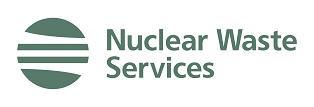Thinking differently about waste: Our sustainability strategy
Published 12 December 2024
Sustainability strategy at a glance
For NWS, sustainability means putting waste at the heart of decision-making – optimising waste to support accelerated decommissioning, in ways that create a positive legacy for people and the planet.
Our five sustainability goals are:
- Closing the loop on waste
- Responsible stewardship
- Empowering people
- Sustainable supply chains
- Being a good neighbour
They will:
-
Shape a more sustainable future of radioactive waste management in the UK.
-
Empower and develop our people, partners and communities to thrive now and for generations to come.
-
Proactively address the climate and nature crises.
We will focus on resource efficiency by reframing nuclear decommissioning as a source of valuable materials as well as wastes. Going more circular is the main lever we can pull to contribute to combatting the climate crisis and nature loss.

This strategy contributes to:
-
UN Sustainable Development Goals (SDGs)
-
UK climate and nature policy commitments
-
NDA Sustainability and Socio-economic Strategies
By applying the waste hierarchy to drive sustainable waste management for the UK nuclear industry.
Applying circular strategies in the nuclear context:
- Rethink – best waste is no waste
- Redesign – design out waste
- Reduce – minimise waste volumes
- Reuse
- Remanufacture, repurpose, repair, refurbish
- Recycle
- Dispose

CEO’s introduction
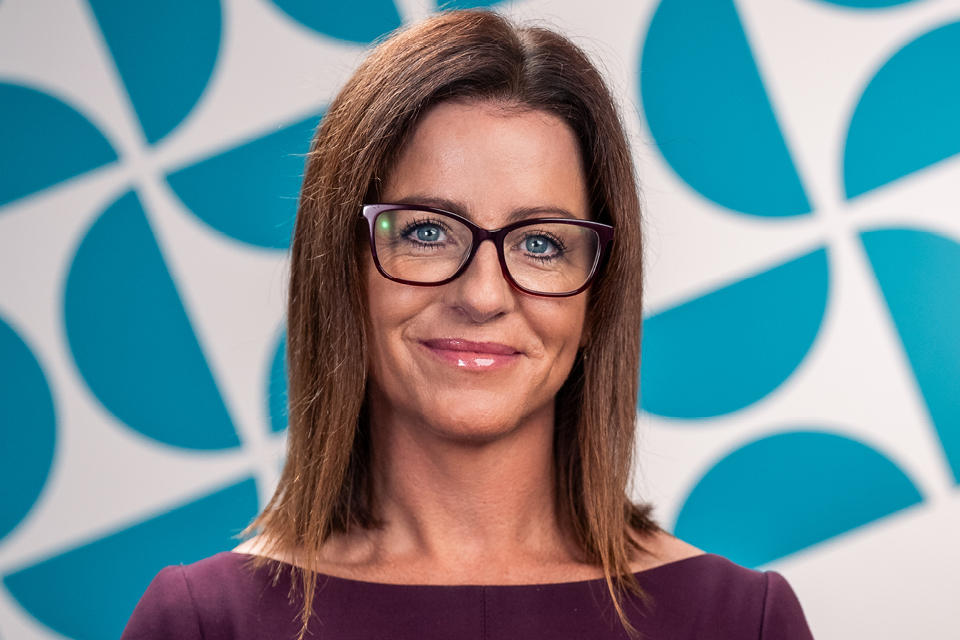
Corhyn Parr, Chief Executive Officer, Nuclear Waste Services
We are making nuclear waste permanently safe, sooner, protecting people and the environment, and enabling a secure, low carbon energy future. We will consciously consider the impacts of our work to manage the UK’s radioactive waste safely, securely and sustainably.
For NWS, sustainability means optimising waste to support accelerated decommissioning, in ways that create a positive legacy for people and the planet.
Safety is fundamental to sustainability, and our priority is to support hazard reduction on UK nuclear sites, protecting people and the environment by safely and securely operating the Low Level Waste Repository (LLWR) site and providing waste management and disposal capabilities.
There is opportunity to think differently about waste across the Nuclear Decommissioning Authority (NDA) Group by applying the waste hierarchy and circular economy principles. Improving resource efficiency is the greatest lever we can pull to influence more sustainable outcomes from nuclear decommissioning. This is about reframing waste in terms of resource value – preventing and minimising waste, recycling for reuse where possible, and optimising waste routes for safe, secure disposal.
We also need to consider the sustainability of our activities over a very long timeframe including how delivery of a Geological Disposal Facility (GDF) will create transformational opportunities while challenging our ability to achieve Net Zero by 2050 or sooner.
This strategy is about how we will deliver our mission to consciously create a positive legacy for people and the planet. That legacy includes the globally significant nuclear waste management capability we are building, and the opportunities created by our mission for communities, supply chains and the UK for future generations.
This approach contributes to the NDA’s vision for sustainability, to be recognised as a leader in transforming nuclear legacies into opportunities for local, regional and national sustainable development, in alignment with the UN Sustainable Development Goals for a fairer, greener world by 2030. We carefully consider how we work with our communities, supply chains and stakeholders to secure positive outcomes for people and places.
Our level of ambition means that we can’t do this alone. We will take responsibility for the areas within our control, partner with others who share our sustainability ethos, engage with those whose support we need, and influence where change is required.
Being a sustainable and responsible business is all about people – we will foster a culture of sustainability leadership, empowering our people to be Impact Conscious and Future Focused.
Sustainable mission delivery
Our Sustainability Strategy supports delivery of the NWS Corporate Strategy, and our 10 by 2030 milestones, as we navigate how to deliver our complex mission in a rapidly changing world.
This strategy sets a clear vision and direction while creating flexibility for future trends and opportunities for value creation.
Our Corporate Strategy sets out 10 milestones that will be the focus of our work until 2030 – with legacy and future waste streams managed in the most sustainable and efficient way to support accelerated decommissioning through innovation.
- Vision: Nuclear waste, permanently safe, sooner.
- Mission: We are the one-stop shop for nuclear waste management and disposal for the UK
- Our values: We are action-orientated; we are ambitious; we act with integrity; we are collaborative and inclusive
- Our strategic objectives: Right waste form, in the right package, in the right facility; Accelerate decommissioning by innovation; Value for the UK

Our five sustainability goals are focused on integrating sustainability into key phases of the waste lifecycle:
-
Planning and preparation: Decision-making, inventory management and characterisation are the foundation of sustainable waste management throughout the waste lifecycle
-
Treatment and packaging: This allows us reduce overall waste volumes, maximise efficiency of packaging and optimise the use of waste management routes
-
Disposal: Enabling safe, secure, permanent disposal of waste in the right facility at the right time to deliver best value to the taxpayer.
Becoming a purpose led organisation
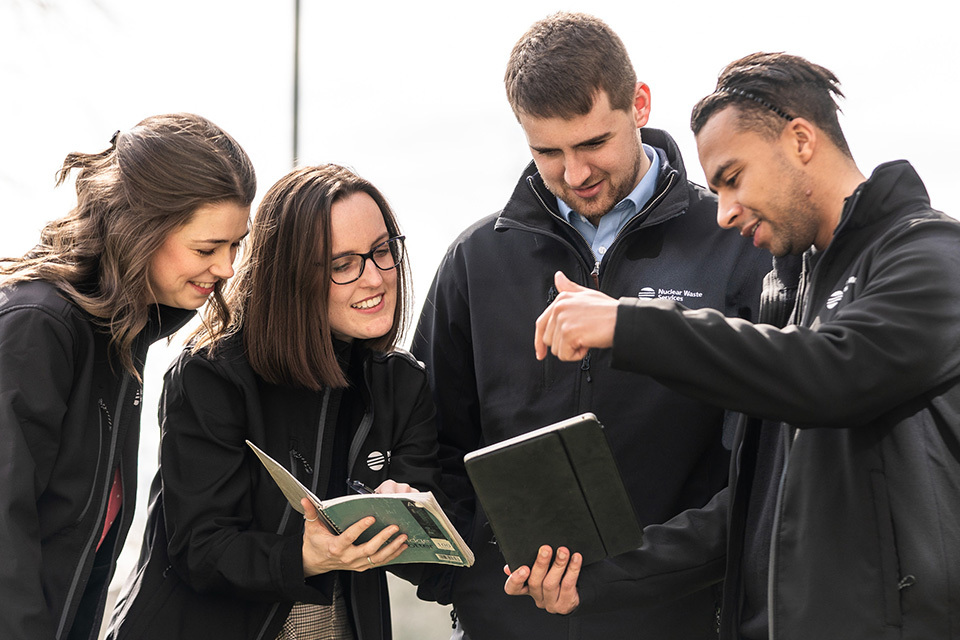
Embedding social, economic, and environmental sustainability into our culture, the way we work and how we make decisions will position us for success to 2030 and beyond.
The sustainability mindset and behaviours associated with this purpose are aligned to our corporate values.

We will put sustainability at the heart of business transformation, focusing on key enablers of a sustainability culture, including:
- Integrated decision-making
- Senior leadership
- Functional and operational leadership
- Individual leadership
- People processes
- Communications and engagement
- Accountability for evidence-based targets
What we do
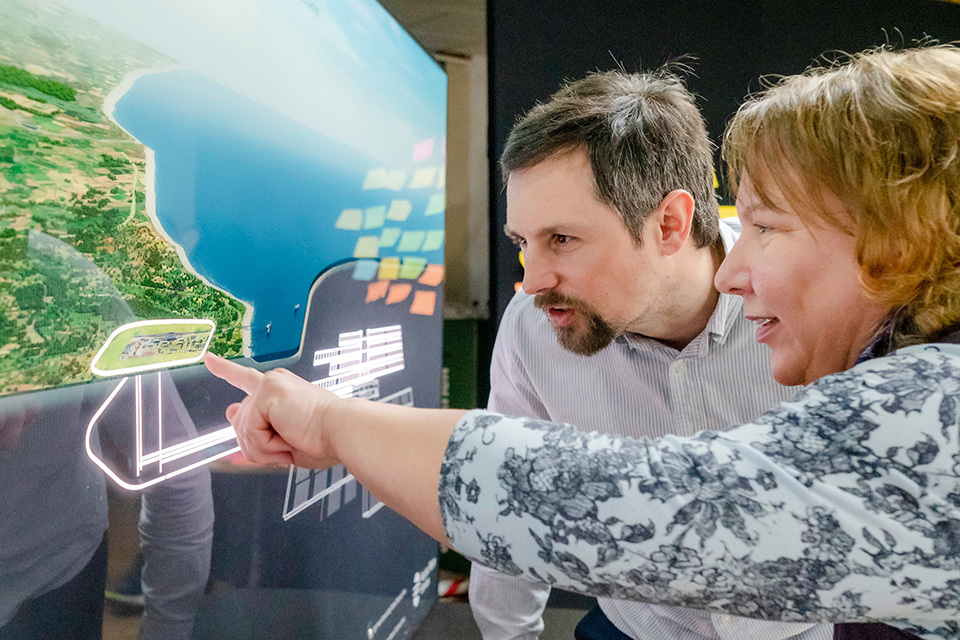
NWS was formed in 2022, bringing together the UK’s radioactive waste management capability to make 4.45 million cubic metres and 1,324 streams of radioactive waste permanently safe, sooner.
Our mission is diverse, involving nuclear site operations, major project delivery, waste management, and leadership towards a more sustainable waste future. The approach set out in this strategy is applicable across NWS, but some issues may be more or less relevant to aspects of our mission at different times.
| Waste Operations | We safely and securely operate the UK’s Low Level Waste Repository (LLWR), which enables decommissioning across the NDA Group and supports customers in the nuclear energy, defence, medical and research sectors. The safe, secure, and environmentally compliant operation of our Repository is the foundation on which we build our reputation, with zero major safety incidents in 2022 to 2023, and receiving recognition from RoSPA with an Order of Distinction. We carry out an extensive environmental monitoring programme to demonstrate that we operate within our Environmental Safety Case. Over the next 100 years, operations on the site will include significant construction work to build new disposal vaults as well as capping operations to return the site to its final state. |
| Waste Services | We manage a framework of waste treatment, logistics and disposal solutions for our customers, using our expertise to apply the waste hierarchy, drive innovation and create value for money for the UK taxpayer. Our goal is to ensure that waste is managed in a way that protects people and the environment, now and in the future. |
| Geological Disposal Facility | We are working in partnership to find a suitable site with a willing host community for the UK’s GDF for disposal of higher activity radioactive wastes, with Site Evaluation work well underway. The next phase of our work will involve intrusive geological investigation to determine the suitability of potential host rock, which will provide the information required to progress the design of the facility. The public will be consulted before we are given consent to deliver the project, and the Potential Host Community will have the final say on whether a GDF goes ahead in their community via a Test of Public Support. The GDF is a major infrastructure project, which will involve significant quantities of materials. Construction, operation and closure of the facility will last around 150 years, and we are committed to maximising the benefits of the project to support the host community’s aspirations. |
| Integrated Waste Management Programme | We are working with partners across the UK nuclear industry to develop new, innovative and sustainable waste management solutions for the future. The Integrated Waste Management Programme is driving improvements in waste management that support accelerated decommissioning activities, aimed at creating savings of at least £2.3bn to the taxpayer. |
Focusing on the issues that matter
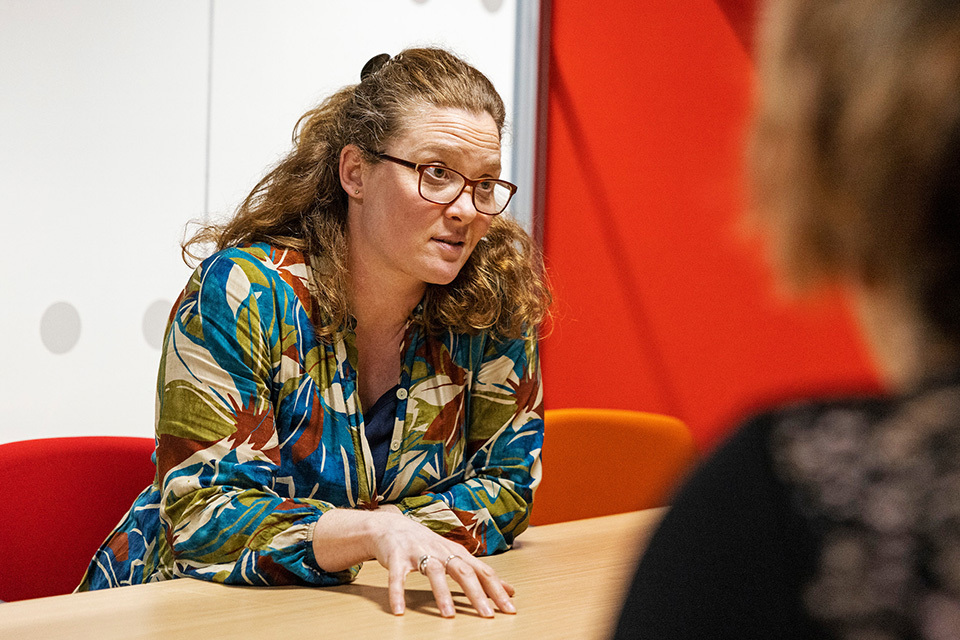
Being impact conscious and future focused requires us to consider how our activities affect and are affected by social, economic and environmental factors in the short and longer term.
There are aspects of our mission that entail more significant impacts, or which potentially offer significant opportunities for sustainable development. Some issues – such as safety, security and cybersecurity – are inherent to our work as a responsible nuclear site operator.
We must also consider these impacts in the context of the systemic trends that are shaping the environment in which we operate – including the climate crisis, nature loss and rising societal inequality.
Hearing from our stakeholders is a priority to help us shape our plans. So far, we have completed materiality assessments to understand the issues of most importance to our executive, board, employees and trade unions.
Environmental, societal, and economic issues for NWS
| Waste | Application of the waste hierarchy to radioactive and conventional wastes, responsible resource management. |
| Environment | Impacts of climate change, environmental protection, biodiversity, nature, and land issues, energy, sustainable travel and transport |
| People | Application of the waste hierarchy to radioactive and conventional wastes, responsible resource management. |
| Procurement | Collaborative supplier relationships, sustainable supply chains, opportunities for Small and Medium Enterprises, social value creation, whole value chain ethics, innovation. |
| Communities | Local employment and opportunities, understanding our socio-economic context, investing in the communities where we work, increasing stakeholder engagement, hearing diverse views. |
Highly important issues
- Safety
- Security
- Cyber Security
- Value for Money
- Fair Pay
We found that there is clear alignment between our sustainability strategy and views on material issues that cut across environmental, social and economic factors. The importance of building trust in NWS among our stakeholders – including communities, government and regulators – emerges as a strong theme.
These materiality assessments help to build understanding that sustainability is not a trade-off against other important factors (such as safety, security and cost) – it requires an approach to balancing many important considerations in our decisions.
In future, we will expand this engagement to periodically hear the views of more of our stakeholders, including hearing the views of young people.
Our sustainability goals
To support our vision to make nuclear waste permanently safe, sooner
We will optimise waste to support the UK nuclear industry, in ways that create a positive legacy for people and the planet, by:
-
Shaping a more sustainable future of radioactive waste management in the UK;
-
Proactively addressing the climate and nature crises;
-
Empowering and developing our people, partners and communities to thrive now, and for generations to come.
To achieve this, we have defined five Sustainability Goals, aligned to our Vision, Mission and Values, to integrate sustainability into what we do and how we do it.
This contributes to:
-
UN Sustainable Development Goals
-
UK Climate and Nature priorities
-
NDA ambition to transform nuclear legacies into opportunities for sustainable development

1. Closing the loop on waste
We will apply the waste hierarchy to optimise waste, including safe, permanent disposal options.
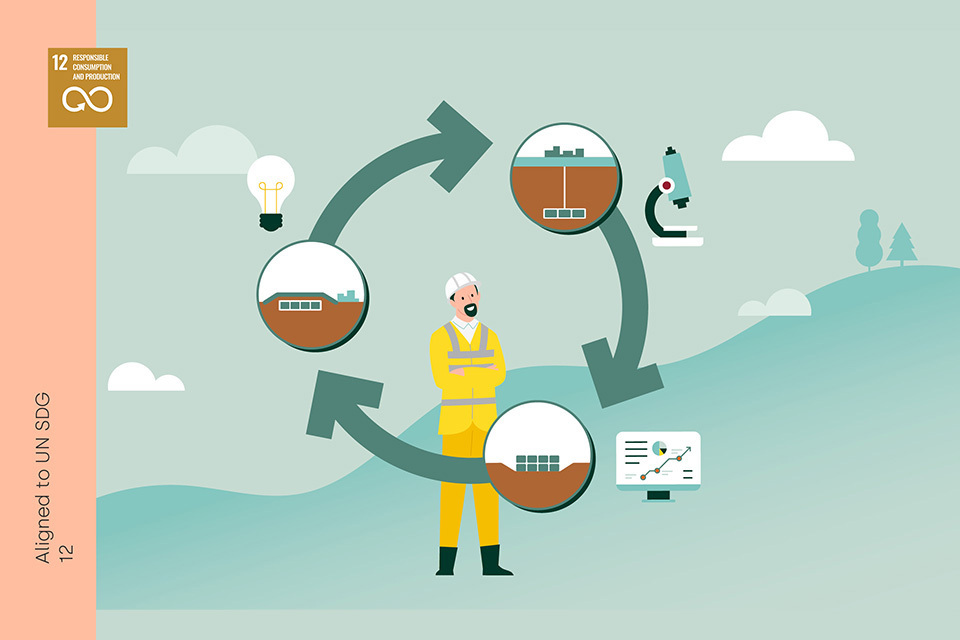
To ensure sustainable consumption and production patterns, we will optimise waste and disposal for the full spectrum of radioactive and non-radioactive (“controlled”) wastes. We will use our position as the UK’s nuclear waste management organisation to influence change across the NDA Group and the wider UK nuclear industry.
By putting waste at the heart of decision-making, we will optimise waste and minimise resource consumption across all our activities, working towards the IWMP goal of zero controlled waste to landfill by 2035.
We will do this by…
Putting waste at the heart of decision-making
To influence this outcome, we will collaborate with industry partners, the NDA and regulators to develop a suite of strategic integrated Best Available Techniques (BATs)/Best Practicable Means (BPMs) to cover the full waste spectrum. BATs/BPMs are an approach to balancing multiple sustainability considerations to ensure the application of design and technologies that minimise environmental impact.
We will influence the “prevent” and “minimise” steps of the waste hierarchy by developing:
-
A UK Strategic Controlled Waste Inventory to support evidence-based planning
-
Guidance on closed lifecycle purchasing
-
Hierarchy-driven design approaches, to optimise our design and asset management processes to include circular “R Strategies”, such as Reuse, Repair, Refurbish, Remanufacture, and Recycle, to extend the lifetime of assets and reduce resource consumption.
To support this goal, we will work with regulators and other industry stakeholders to enable optimised reuse of material, and update internal processes to enable opportunities for reuse, including integrating processes for management of radioactive and controlled wastes.
To enable transparent reporting on progress, we will identify and report on metrics and targets for increasing circularity.
Identifying and taking opportunities
We will actively identify and take opportunities to close the loop throughout the waste lifecycle, for example:
-
Recirculating recycled metals back into our own programmes or the wider UK nuclear industry
-
Maximising onsite reuse of materials (demolition wastes and spoil) within LLWR site operations, across the NDA Group and the wider UK/ nuclear sector
-
Maximising sustainability benefits during transport and interim storage of waste at UK nuclear sites.
2. Responsible stewardship
Our approach to environmental enhancement will protect nature and respond to the climate crisis.
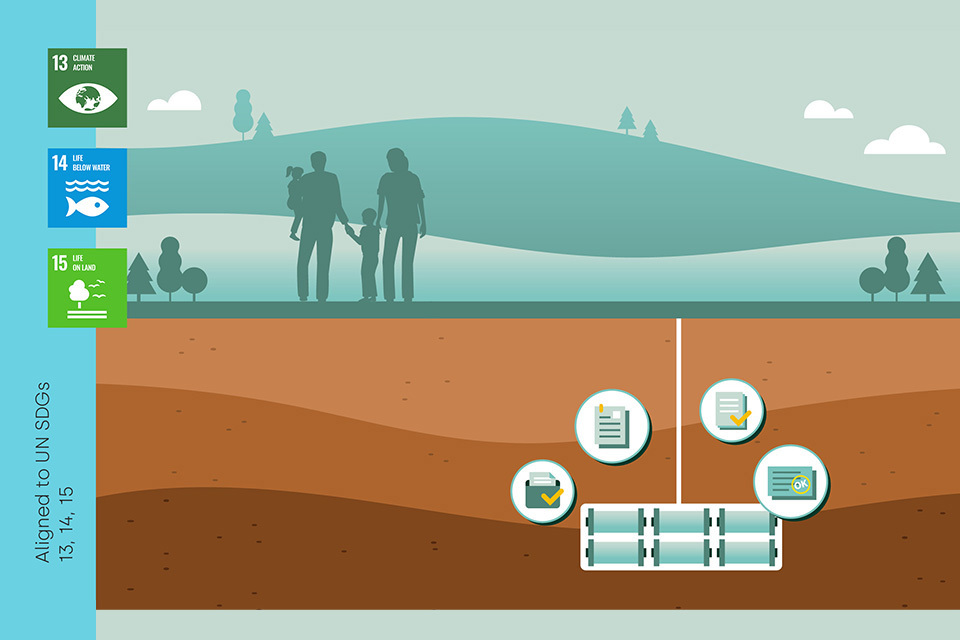
We will do this by…
Going beyond environmental protection
We will develop a strategy and phased approach to the delivery of Environmental Net Gain, adopting a best practice approach – eventually expanding from mitigation of the environmental impact of projects to delivering net gain for all of our activities.
Acting on climate
We will take action to reduce our contribution to climate change, by developing an improved understanding of our carbon baseline and mapping our Scope 3 emissions in greater detail to identify hotspots and prioritise reduction efforts.
This will enable us to agree interim reduction milestones for 2030 and 2040 on a pathway to Net Zero by 2035 for Scope 1 and 2 and 2050 or sooner for Scope 3.
We will implement best practice for full lifecycle carbon management, including taking a collaborative approach to addressing Scope 3 emissions and building accounting and reporting capability to support prioritisation of emissions reduction efforts across operations and projects.
We will develop an Integrated Energy Strategy for NWS with supporting Site Specific Energy Plans, detailing the actions to reduce energy demand, increase efficiency and increase low-carbon supply.
Adapting to a climate-changed world
We will develop an NWS Climate Adaptation Plan, including measures to understand the impacts of climate change and the transition to a lower carbon future on enterprise resilience and business continuity.
We will transparently publish our progress on climate adaptation and mitigation in an NWS Annual Sustainability Report, aligned to HM Government’s phased approach to climate risk disclosures.
Emissions:
-
Scope 1 Direct emissions that NWS produces, for example by burning fuels
-
Scope 2 Indirect emissions associated with the electricity we use
-
Scope 3 Emissions generated in our supply chains in the production of goods and provision of services
3. Empowering people
We will empower our people to make an impact as sustainability leaders.
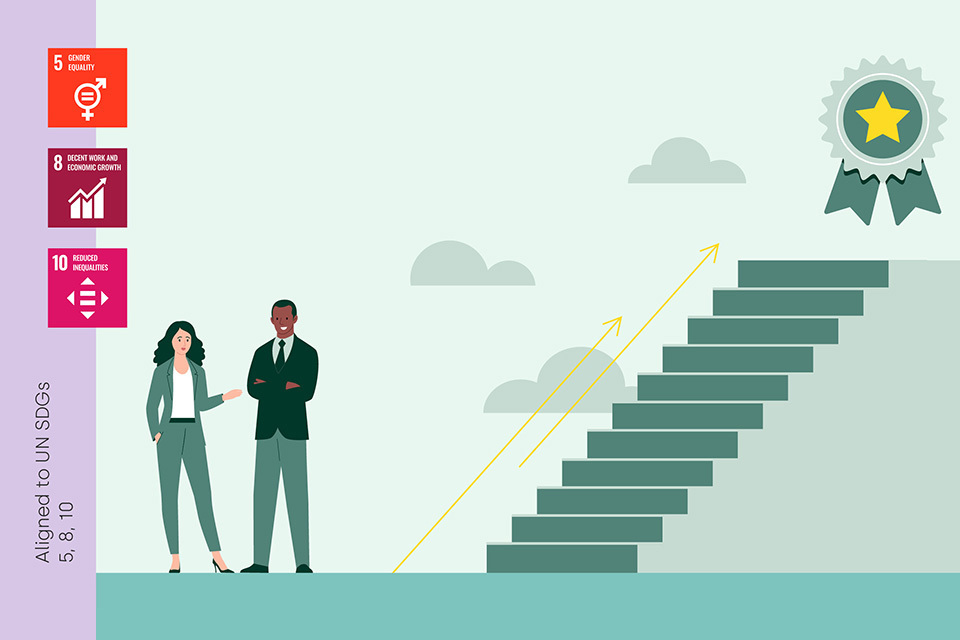
The key interventions for this goal are:
10,000 hours in the community
We will empower our staff to achieve 10,000 hours per year in the community, supporting social and environmental causes and acting as ambassadors for NWS. We will ensure our impact is aligned to NDA, NWS and stakeholder priorities.
The types of local and national causes we support might include:
-
Voluntary, community or social initiatives, especially those that promote equality of opportunity
-
Activities to conserve and protect nature
-
Delivering educational outreach activities that inspire young people with diverse skills into careers in the nuclear industry.
We will put in place a policy to allow staff to use normal working hours for this purpose, as well as systems to make sure we can measure and report overall impact over time.
Safe, secure, sustainable culture
Building on our healthy safety and security culture, we will foster a culture of sustainability leadership, helping people to develop the values, mindset and practices to perform their roles more sustainably. This involves fostering the courage to take a “why wouldn’t we?” approach to becoming a more sustainable organisation, where people feel safe to challenge the status quo and to apply new ideas and innovations.
To support this goal, we will integrate sustainability into our culture-change and communications plans.
Engaging and learning
We will put sustainability at the centre of professional development, creating pathways for every job to become a sustainability job, offering inclusive, equitable and accessible employment and progression routes.
To encourage progress and create accountability, we will link individual performance measures and corporate targets to sustainability.
We understand that leadership competence drives change, and we have appointed an expert non-executive director for sustainability to our Board.
It is important that we share our approach to sustainable waste management and disposal and learn from others in the international community, as we build a globally significant sustainable nuclear waste management capability.
4. Sustainable supply chains
We will create long-term value through responsible procurement and collaborative supply chain development.
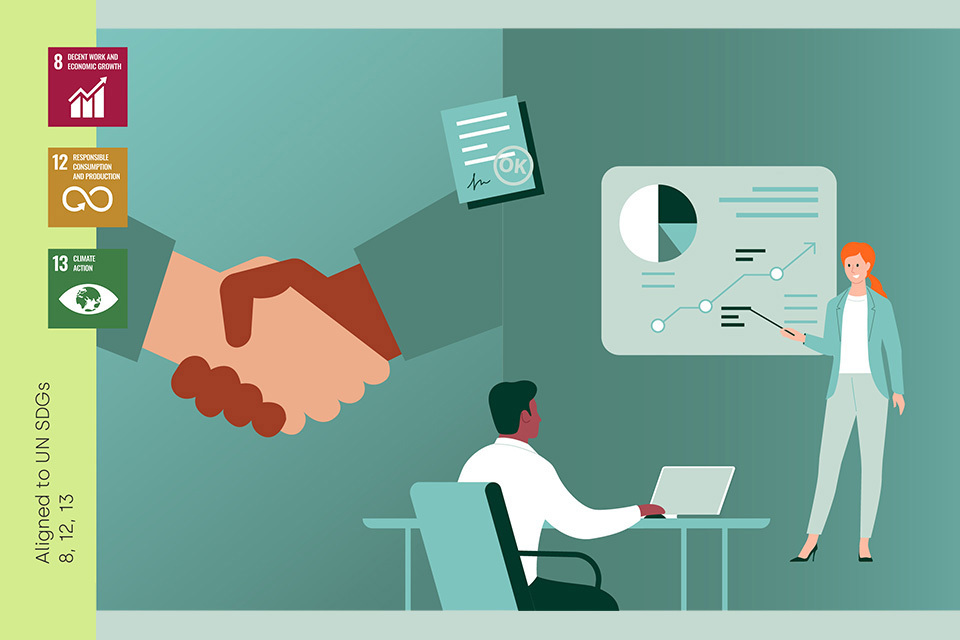
By collaborating with waste producers and our suppliers, we can better facilitate the flow of waste, giving our partners the confidence to invest in the new waste management capabilities required to help make nuclear waste permanently safe, sooner.
Ensuring that ethical, environmental and social issues are addressed in the delivery of our contracts is a critical enabler to sustainable mission delivery.
We will work to achieve the highest levels of public sector commercial performance and our approach will deliver compliant, best-value outcomes while supporting the NDA’s Sustainable Supply Chain approach.
We will do this by…
Becoming a sustainable client
We will embed sustainability into our end-to-end procurement lifecycle processes by updating our management system, providing a toolkit, support and training to ensure those involved understand their responsibility for sustainability at each stage of the commercial process.
We will apply the UK Government’s Commercial Continuous Improvement Assessment Framework to prioritise our improvement plans.
Growing collaborative relationships
We will develop a supplier relationship management approach to address value chain sustainability and ethical issues in line with best practice standards, and work towards making NWS a client of choice within the nuclear industry.
To do this, we will develop a Supply Chain Charter, enhance our supplier induction and audit processes, and implement a ‘Voice of the Supplier’ process to understand and improve supplier experience of working with NWS.
Focusing on sustainable outcomes
Local, place-based social value is at the heart of our approach. We will align our Social Value strategy to the NDA Social Impact and Communities strategy themes and NWS priorities, including:
-
Environment: Protecting and conserving the natural world
-
Education: providing curriculum support, targeting our Outreach activities towards developing the skills needed by the nuclear industry for the future and inspiring young people into careers in nuclear
-
Skills: supporting development of skills for the future, enabling equality of opportunity and access to employment, and supporting other sectors to develop the skills needed to ensure that the communities where we live and work thrive
-
Building capacity: in the voluntary, charity and social enterprise sector to provide the services needed for local communities to thrive in the long term.
Our expectations of Social Value from our suppliers will be relevant to the scope of work, location of delivery, and to the capabilities of our suppliers, as well as being proportionate to the scale of our contracts.
We will provide guidance that supports delivery of Social Value, as well as support and training for our commercial teams. We will put in place a Social Value measurement system, so that we can transparently report our impact.
As a waste management organisation, it is important that we work towards Closed Lifecycle Purchasing to enable optimised use of our resources by only purchasing materials for which there is a defined waste route, unless there is no alternative product available.
5. Being a good neighbour
We will be a responsible business, trusted to do more. Our work will create a transformational legacy for communities.
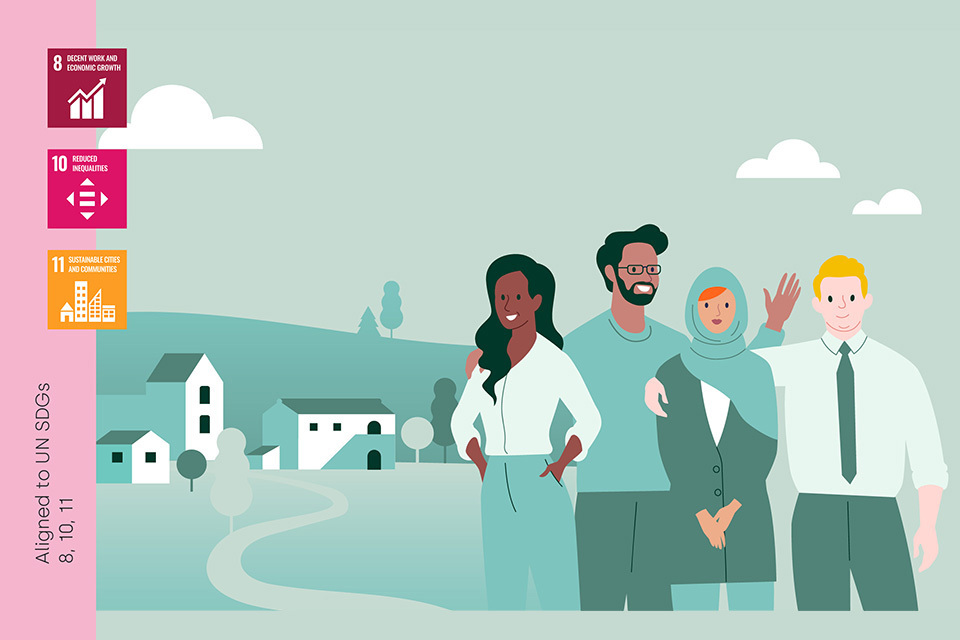
We are conscious of the impacts of our activities, and we are committed to building open and constructive relationships with the communities where we live and work.
Our neighbours near to the LLWR site grant us our social licence to operate, and hold us to account for our safety, environmental performance and support for the local community.
We are working in partnership to find a willing host community and suitable site for a GDF, engaging with the participating communities and local residents to understand how the benefits of a GDF could be maximised to support the community’s vision for the future. Our GDF Sustainability brochure sets out our commitment to ensuring the project leads to long-term sustainable development, focusing on three key areas– communities, environment and supply chains.
We have a responsibility to deliver the maximum positive social impact from the significant public investment made in our mission each year. This includes: considering how we deliver our activities to create wider benefit; the Social Value we create; and the socio-economic and Community Investment Funding we provide.
Our mission will create a positive impact for people and places. We will achieve this by…
Publishing a Nuclear Waste Services Social Impact Plan
We will engage with our stakeholders to develop a Social Impact Plan for NWS, aligned to the NDA Social Impact and Communities Strategy. Our focus is to help achieve long-lasting positive social, economic or environmental benefit. Our Social Impact Plan will also include a measurement approach that will support transparent reporting and stakeholder scrutiny of our social impact.
Increasing collaboration
Hearing diverse voices and working collaboratively will help us to build trusting relationships and maximise our positive impact by responding to needs and expectations.
We will explore opportunities to increase stakeholder participation in our work, including engaging transparently with Local Government, Site and National Stakeholder groups, Nuleaf and NGOs. Our mission will affect multiple future generations, so hearing the views of young people is a priority.
We will aim to increase engagement with seldom heard and under-represented groups.
Being a good neighbour
We make choices every day that impact our communities. NWS employees and our supply chain partners are members of the communities where we live and work and have a responsibility to act as ambassadors for NWS, building trust in our mission. We will continue to engage at a local level to learn from and respond to the needs of our local communities.
Our journey

Governance and transparency
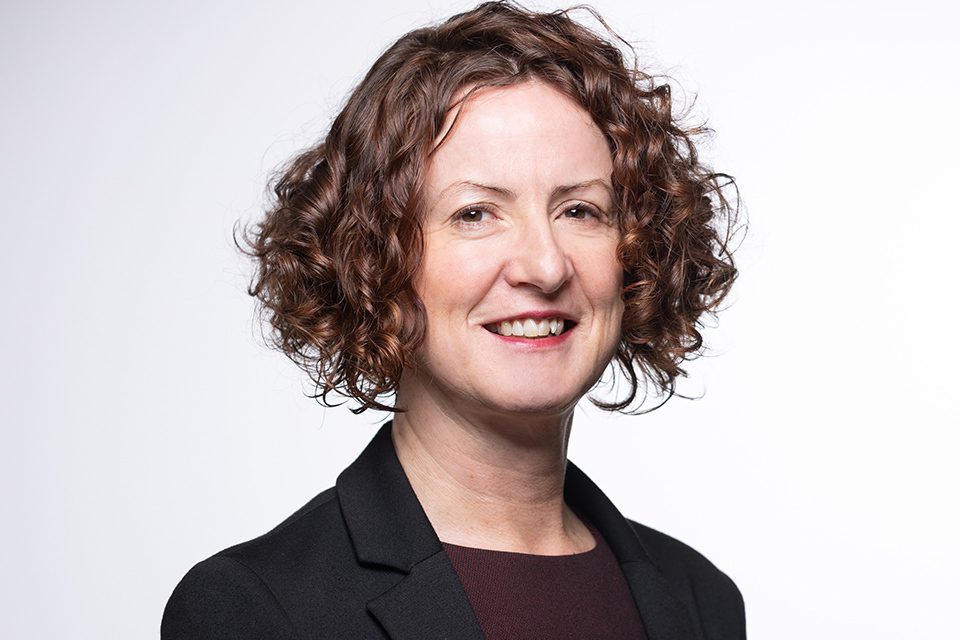
Vicky Bennett, General Counsel and Company Secretary
Sustainability is addressed within the NWS governance structure, with oversight from NDA governance.
The NWS Board and Executive are responsible for strategic direction, including providing effective oversight of performance and strategic resilience to climate and nature-related risks and opportunities.

Management responsibility
Overall accountability for sustainability sits with our Strategy & Waste Director and accountability for Transparency with our General Counsel/ Company Secretary.
Five Executive Sponsors are identified as the owners for each of our five Sustainability Goals:

- Closing the loop
- Responsible stewardship
- Empowering people
- Sustainable supply chains
- Being a good neighbour
Reporting and disclosures
We are committed to openly and transparently reporting on our progress on delivering our corporate strategy in our annual report. From 2025, we will publish an annual sustainability report, including metrics to measure performance against each of our sustainability goals.
Threats and opportunities associated with climate, nature and other sustainability trends intersect with strategic and operational risks and opportunities. We will develop and apply best practice approaches to periodically test the resilience of our corporate strategy to climate and nature-related risks and we will disclose the roles, responsibilities, governance and processes involved.
As part of the NDA Group, and as a public body, we will comply with all applicable disclosure requirements relating to climate and nature-related risks and opportunities, and will strive to align with best practice including the use of metrics and targets, to enable fair scrutiny of our sustainability performance.
